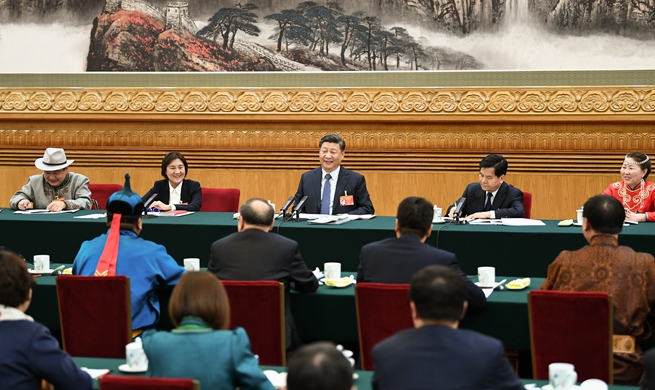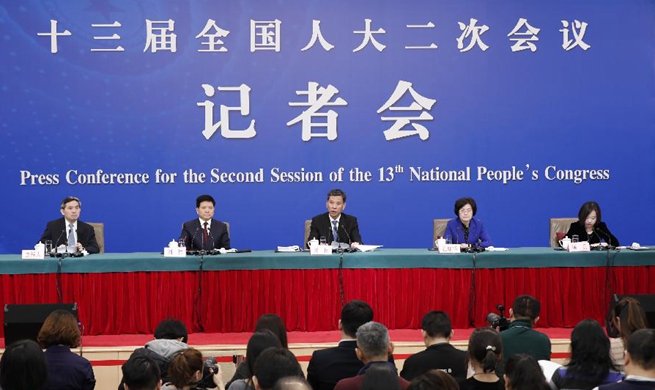ANKARA, March 7 (Xinhua) -- The rate of women employment is less than half of that of the man workforce in Turkey for 2017, according to recent data released by the Turkish Statistical Institute (TUIK).
In its "Women in Statistics 2018" report released on Wednesday, TUIK determined that the women above the age of 15 in labor force is 28.9 percent while it was 65.6 percent for men.
Female labor force participation in Turkey is exceptionally low by international standards.
In 2018, the highest rate of women employment was seen in the service industry with 56.1 percent. The presence of women in executive positions was 17.3 percent, with an increase compared with 2012 figures which were recorded at 14.4 percent, according to the data.
The rate of women ambassadors in the foreign ministry has almost doubled in the past ten years, according to the reports. The rate was 10.8 percent in 2009, while this number has reached to 22.1 percent in 2018.
According to higher education statistics, female professor ratio was 27.4 percent in the 2008-2009 academic year and increased to 31.2 percent in the 2017-2018 academic year.
Almost 49.8 percent of Turkey's population are women, and the level of education remains the main determinant in female labor force participation in the country.
The statistics found out that the higher the level of education, the more women participated in the labor force, with 72.7 percent for women who graduated from universities in the workforce in 2018, while this number falls to 27.7 percent for those whose education level was under secondary school level.
There are deep gaps in female labor force patterns between rural and urban areas of the country. The regions in western Turkey are more industrialized and more developed, compared to those in the east where agricultural employment is more than double the country average, according to TUIK statistics.
Turkey is leading the European countries when it comes to the rate of increase in the female labor force in the past 10 years, according to Minister of Family, Labor and Social Security Zehra Zumrut Selcuk.
"In this period, we increased female employment by 63 percent, approximately 3.4 million people," she said on March 2.
"We keep our women in our economy, while we are trying to develop special policies in order to keep with their families and children," she said, recalling practices such as home care support, maternity leave arrangements, nursery support, insurance premium subsidies, and part-time work.
However, experts stress that the rate of women's participation in the workforce is still low. Turkey is the only Organization for Economic Cooperation and Development (OECD) member country that the women labor force participation rate is lower than 30 percent, according to Guven Sak, Director of Economic Policy Research Foundation of Turkey.
This number is 51.9 percent average in OECD countries, while 46 percent in the EU.
Female employment is hindered by cultural and traditional stereotypes prevalent in the country. Another factor for low female participation in the labor force is lacking vocational, and technical training.
There are 20 million women aged between 15 and 65 who are not involved in the labor force, Sanem Oktar, President of Women's Entrepreneurs Association of Turkey (KAGIDER) said.
"There are two groups of women here. One of them has once worked but had to quit because of child and elderly care or because of marriage. Another group has never been involved in business," she said.
According to KAGIDER research, 40 percent of working women are quitting because of marriage and child. But 60 percent of them are not happy about this choice. Oktar underlined the issue that needs to be solved here is the dissemination of child care and nursery system.
The expert noted that some new regulations have drawbacks in women's engagement into the labor force.
Oktar points to the fact that despite high ratio of university graduated women involved in the labor force, these people have difficulty in finding a job in the past two years, because employers do not prefer women due to the long permits given after the birth. Women are not preferred especially in the executive positions of the private sector, she said.
If she gets pregnant, a woman in Turkey can have one-year parental leave and employers do not want to afford it, Oktar said.
"Now we see the results. This system is pushing women to a lower paid place," the expert said.











